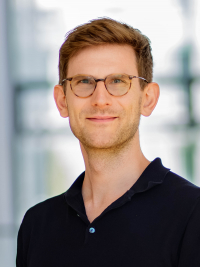SIB-Social Space: Inclusively Confronting Guilt Distance – Development of an Instrument for Multiprofessional Case Diagnostics in the Social Space
The phenomenon of "school distance", in the sense of an impressive form of exclusion, has so far been insufficiently researched at the interface of school and youth welfare. This project is dedicated to the topic of school distance from a basic research and an application-oriented perspective.

Existing empirical research shows that school distance is multifactorial and poses a serious threat to participation and educational rights. In addition to school-specific factors, initial research results attribute significant importance to the social space of those affected. From a basic research perspective, a framework model was developed on the basis of extensive literature research and additional interviews with experts, which conceptualises four dimensions of in- and out-of-school influencing factors:
- school context
- family context
- individual aspects
- social relations
The basic scientific empirical examination of this framework model is implemented with a focus on the specification of different constellations of influencing factors through the reanalysis of partly representative longitudinal studies. Starting with data from the studies ELEMENT, MARKUS, BELLA, LABEL studies, strategies for data analysis will be developed and tested in order to prepare the work with data from the National Education Panel (NEPS). data.
The application-oriented development of the concrete working material for diagnostic process support is based on the instrument for support planning in a team for secondary education (FiT-S, Krauskopf et al., 2019). The development of the instrument is based on cognitive and social psychological research and serves a structured and efficient support planning in the (multi-professional) team. From this research, it can be deduced that for effective casework in the team, there must be sufficient similarity between the participants of a case and at the same time they must still differ sufficiently with regard to professional expertise in order to sufficiently understand complex cases and derive specific goals and measures from them.
The co-construction of shared mental models is postulated as the central mediating process. For the concrete work with the material, this means that the diagnostic process is carried out by a multi-professional team with the participation of the family and the affected pupils themselves. With the help of empirical testing in the field, both the possibilities of participation of those affected and knowledge-based networking (transactive memory) are to be reflected upon together with the actors in the social space. Here, the focus is on the integration of experts and instruments of youth welfare.
The evaluation of the instrument follows the principles of design-based research and uses a multi-method approach. Here, analyses of the diagnostic processes (interaction observation) are combined with the resulting results (artefacts) and the categorisation of the derived goals and measures according to theoretical and practice-related criteria catalogues.
Lectures and publications
- Krauskopf K., Rogge, F., Salzberg-Ludwig, K. & Knigge, M. (2019). Support planning in a team for secondary education (FiT-S). Guidance for the efficient planning session. Munich: E. Reinhardt Verlag.
- Dalla-Marta, P. & Krauskopf, K. (2021, 17 September). "Meeting school distance inclusively" - a tool for multiprofessional case diagnostics. digiGEBF 21 Inclusion and Education, digital conference(PDF).
Contact
Project management

Prof. Dr. Dipl. Psych. Karsten Krauskopf
Project participants
- Pauline Dalla-Marta